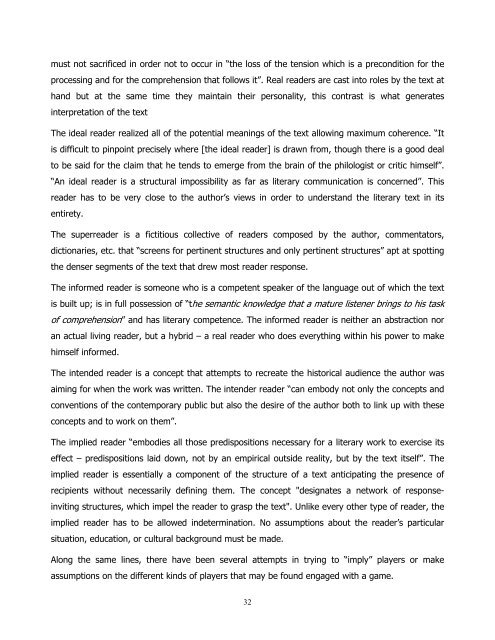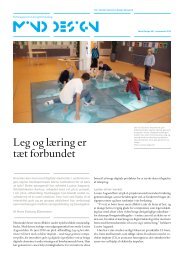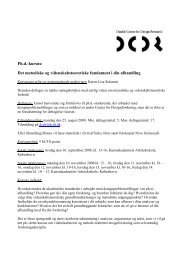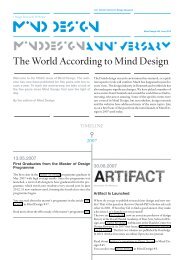Play-Persona: Modeling Player Behaviour in Computer Games
Play-Persona: Modeling Player Behaviour in Computer Games
Play-Persona: Modeling Player Behaviour in Computer Games
You also want an ePaper? Increase the reach of your titles
YUMPU automatically turns print PDFs into web optimized ePapers that Google loves.
must not sacrificed <strong>in</strong> order not to occur <strong>in</strong> “the loss of the tension which is a precondition for the<br />
process<strong>in</strong>g and for the comprehension that follows it”. Real readers are cast <strong>in</strong>to roles by the text at<br />
hand but at the same time they ma<strong>in</strong>ta<strong>in</strong> their personality, this contrast is what generates<br />
<strong>in</strong>terpretation of the text<br />
The ideal reader realized all of the potential mean<strong>in</strong>gs of the text allow<strong>in</strong>g maximum coherence. “It<br />
is difficult to p<strong>in</strong>po<strong>in</strong>t precisely where [the ideal reader] is drawn from, though there is a good deal<br />
to be said for the claim that he tends to emerge from the bra<strong>in</strong> of the philologist or critic himself”.<br />
“An ideal reader is a structural impossibility as far as literary communication is concerned”. This<br />
reader has to be very close to the author’s views <strong>in</strong> order to understand the literary text <strong>in</strong> its<br />
entirety.<br />
The superreader is a fictitious collective of readers composed by the author, commentators,<br />
dictionaries, etc. that “screens for pert<strong>in</strong>ent structures and only pert<strong>in</strong>ent structures” apt at spott<strong>in</strong>g<br />
the denser segments of the text that drew most reader response.<br />
The <strong>in</strong>formed reader is someone who is a competent speaker of the language out of which the text<br />
is built up; is <strong>in</strong> full possession of “the semantic knowledge that a mature listener br<strong>in</strong>gs to his task<br />
of comprehension” and has literary competence. The <strong>in</strong>formed reader is neither an abstraction nor<br />
an actual liv<strong>in</strong>g reader, but a hybrid – a real reader who does everyth<strong>in</strong>g with<strong>in</strong> his power to make<br />
himself <strong>in</strong>formed.<br />
The <strong>in</strong>tended reader is a concept that attempts to recreate the historical audience the author was<br />
aim<strong>in</strong>g for when the work was written. The <strong>in</strong>tender reader “can embody not only the concepts and<br />
conventions of the contemporary public but also the desire of the author both to l<strong>in</strong>k up with these<br />
concepts and to work on them”.<br />
The implied reader “embodies all those predispositions necessary for a literary work to exercise its<br />
effect – predispositions laid down, not by an empirical outside reality, but by the text itself”. The<br />
implied reader is essentially a component of the structure of a text anticipat<strong>in</strong>g the presence of<br />
recipients without necessarily def<strong>in</strong><strong>in</strong>g them. The concept "designates a network of response-<br />
<strong>in</strong>vit<strong>in</strong>g structures, which impel the reader to grasp the text". Unlike every other type of reader, the<br />
implied reader has to be allowed <strong>in</strong>determ<strong>in</strong>ation. No assumptions about the reader’s particular<br />
situation, education, or cultural background must be made.<br />
Along the same l<strong>in</strong>es, there have been several attempts <strong>in</strong> try<strong>in</strong>g to “imply” players or make<br />
assumptions on the different k<strong>in</strong>ds of players that may be found engaged with a game.<br />
32















